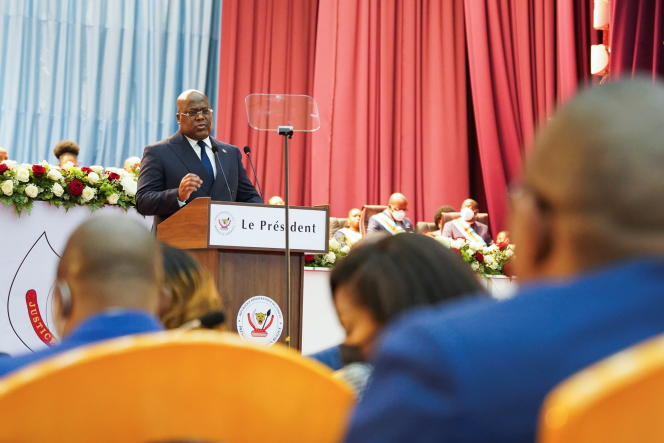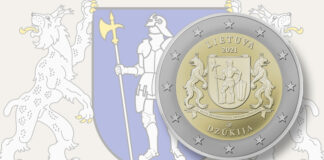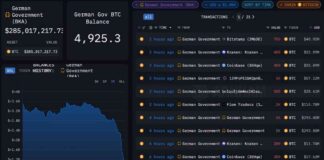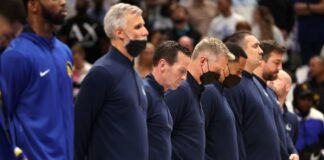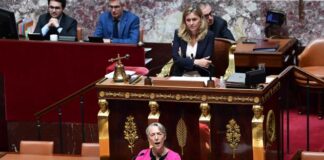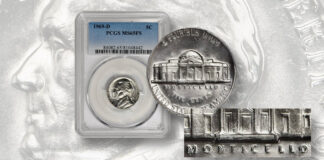A year and a half before the presidential election, the candidacy season is launched in the Democratic Republic of Congo (DRC) and is already causing a commotion heralding a pre-electoral crisis against a backdrop of community tensions. Until recently, the only declared candidate was the outgoing president, Félix Tshisekedi, who announced in 2020, three years before the end of his term, that he would run for a second, as allowed by the Constitution. But since the beginning of May, the political terrain has been heating up.
Former Prime Minister Augustin Matata Ponyo (2012-2016) took the other contenders for the presidential chair by surprise by announcing his intention to enter the race. Accused of alleged embezzlement of public funds when he was head of government, Mr. Matata, who disputes any embezzlement, saw his horizons brighten in November 2021, when the Constitutional Court found that it had no jurisdiction to judge him, cutting short the proceedings against him.
Suspicions of corruption fell on the president of this court, Dieudonné Kaluba, who, despite Mr. Matata’s denials, was offloaded on May 10 under a strange and disputed draw procedure. Many saw the hand of the presidency, which would not have wanted to keep him at the head of this crucial body in the electoral process, since it ultimately proclaims the results of the presidential and legislative elections. These results are sometimes violently disputed, as in 2006 and 2011, resulting in dozens of deaths.
A noticeable handshake
The announcement of Augustin Matata’s candidacy prompted other candidates to come out of the woodwork. On the starting line, there will be Martin Fayulu, unsuccessful presidential candidate of 2018, who, questioned by AFP, declares that he is “naturally” candidate for that of 2023. His ally of the opposition coalition Lamuka is also announced: “Adolphe Muzito is the natural candidate of the New Momentum party”, assures its secretary general, Blanchard Mongomba. For his part, the former governor of Katanga Moïse Katumbi still reserves. But one of his relatives says his presidential candidacy “is a must”.
In the DRC, certain electoral candidates, in order to present themselves in a position of strength, seek to consolidate their tribal or provincial bases, which are regularly exploited during violent disputes. The inhabitants of the Grand Katanga mining region have just organized days of reconciliation which ended on Sunday, May 22, with a noticeable handshake between Moïse Katumbi and ex-president Joseph Kabila, former allies who had been at odds for several years. . Another conference is scheduled for this week in neighboring Grand Kasai, whose nationals are regularly in conflict with those of Katanga.
The country also remains weakened by the violence of dozens of armed groups in its eastern part, where conflicts between communities seem to be worsening despite ongoing military operations.
“Fraud” and “tampering”
At the same time, tension increased in the National Assembly, where part of the opposition slammed the door of debates on the revision of the electoral law, accusing the majority of having retained only four of the “18 Consensus Amendments” proposed to enhance the transparency and credibility of the ballots. In particular, the Assembly rejected the proposals to make the publication of the results of the polling station by polling station compulsory or to prohibit the buying of votes by candidates. “With these rejections, the electoral law enshrines tampering and fraud”, as in 2006, 2011 and 2018, accuses AFP of opposition deputy Claudel Lubaya, one of the initiators of the proposed amendments.
“If Tshisekedi wins in 2023, the country will be at war”, warns Martin Fayulu, who continues to claim his victory in the presidential election of December 2018. In recent months, the opposition and the Catholic and Protestant Churches have accused Felix Tshisekedi of having placed a relative at the head of the commission in charge of organizing the elections. Joseph Kabila’s camp accuses him of having “irregularly” appointed constitutional judges in his pay in 2019. “The process does not enjoy the confidence of many people and organizations involved in the elections,” which is causing tension and bodes ill for the future, notes Trésor Kibangula, of the Ebuteli Governance Research Institute, based in ‘New York University.
It also remains to be seen whether the elections will take place as planned by the end of 2023. The electoral commission complains of receiving “homeopathic doses” of government funds to prepare them.
